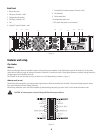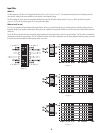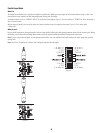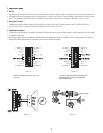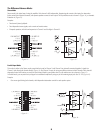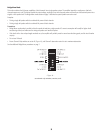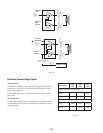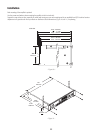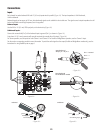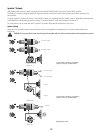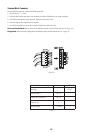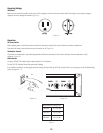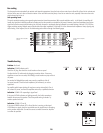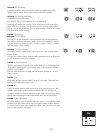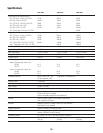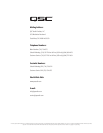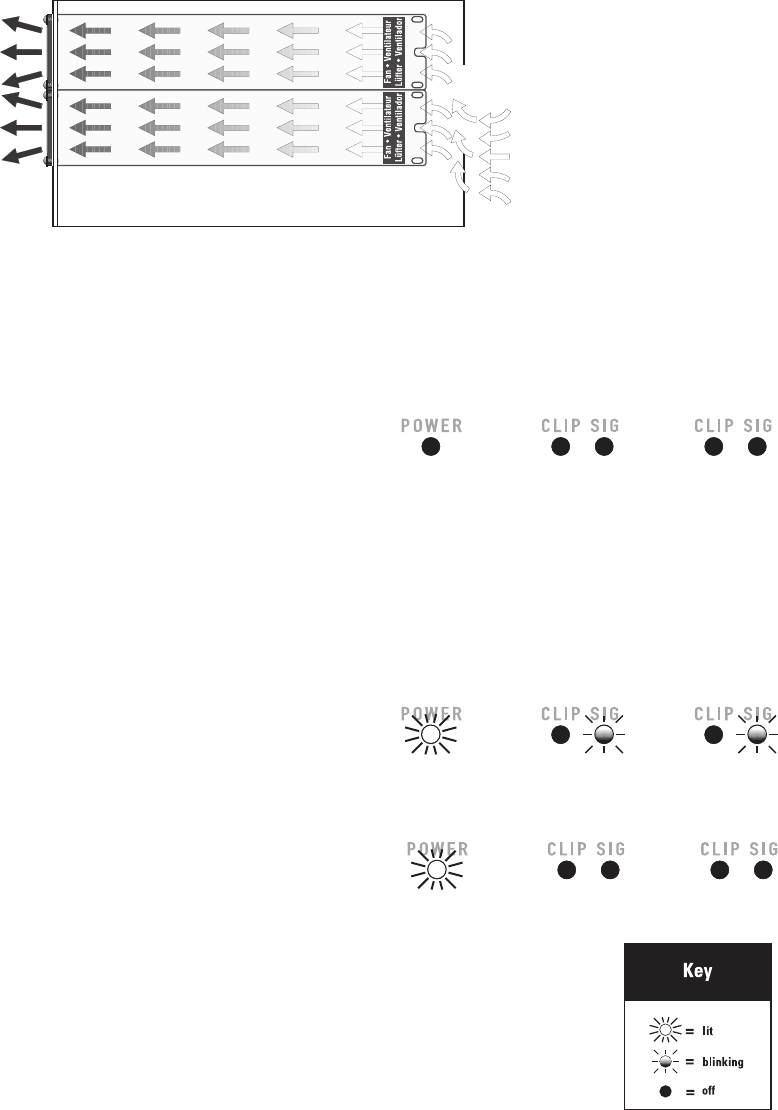
15
16
Fan cooling
The fan speed varies automatically to maintain safe internal temperatures. Keep the front and rear vents clear to allow full air flow. Hot air exhausts out
the front of the amp so it does not heat the interior of the rack. Make sure that plenty of cool air can enter the rack, especially if there are other units
which exhaust hot air into it.
Safe operating levels
The amp's protective muting system guards against excessive internal temperatures. With normal ventilation and 4 - to 8Ω loads, the amplifier will
handle any signal level including overdrive-but make sure that the speakers can handle the full power! However, lower load impedances and higher
signal levels produce more internal heating. Into 2Ω loads, frequent or prolonged clipping (indicated by constant flashing of the red CLIP LED) may
trigger protective muting. Bridged mono mode doubles the output impedance of the amp; 4Ω is the minimum load impedance. Heavy clipping may
cause muting. If this happens, see the Troubleshooting section below through the following page.
Troubleshooting
Problem: No Sound
Indication: POWER indicator not lit
Check the AC plug. Also check the circuit breaker on the rear panel.
Confirm that the AC outlet works by plugging in another device. If too many
amplifiers are used on one outlet, the building’s circuit breaker may trip and shut
off power.
An overload in Bridged Mono mode may cause the amplifier to click off
for several seconds. Check the load impedance (4Ω minimum), or reduce
signal level.
An amplifier which keeps shutting off may have a serious internal fault. Turn it
off, remove AC power, and have the amplifier serviced by a qualified technician.
Indication: SIGNAL LED responding to signal level
If the green SIGNAL indicators are lighting normally, the fault is somewhere
between the amp and the speaker. Check the speaker wiring for breaks. Try
another speaker and cable.
Indication: SIGNAL LED not lit
If the green POWER indicator LED is lit and the fan is running, yet the signal
LEDs indicate no signal, check the input. Make sure the signal source is operating
and try another input cable. Connect the source to another channel or amplifier
to confirm its operation.
Cool air enters the amplifier
and rack.
Warm air exits the amplifier
and rack.
Rack
– Figure 34 –



